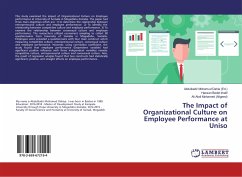Benefits of creating a work-based learning program. It¿s Good for Businesses ¿Businesses get a productive employee and can align training with the specific needs of their occupation and industry,¿ Hirsch says. ¿Work-based learning leads to increased employee retention and lower turnover costs.¿ According to a survey by the National Association of Colleges and Employers, employers want problem-solving skills and the ability to work with a team, followed by written communication skills, leadership and a strong work ethic. It¿s Good for Workers Employers want to hire workers with experience, but workers can¿t gain experience unless employers hire them. However, work-based learning eliminates this Catch-22. ¿Work-based learning programs provide students with options for career employment, while also recognizing the need for additional education, says Dr. Joseph C. Rallo, senior advisor for the Louisiana Board of Regents.
Hinweis: Dieser Artikel kann nur an eine deutsche Lieferadresse ausgeliefert werden.
Hinweis: Dieser Artikel kann nur an eine deutsche Lieferadresse ausgeliefert werden.








